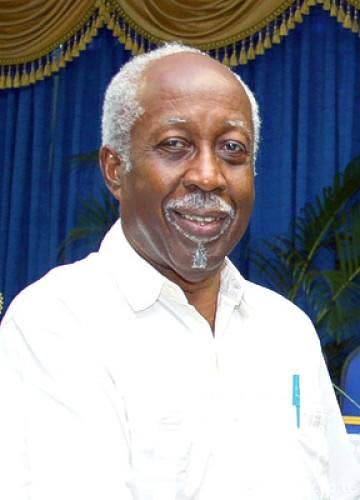Pulpit, plantation and pyramid

REGINALD DUMAS
THE UNITED Nations International Decade for People of African Descent began on January 1, 2015 and ends on December 31, 2024. From my conversations, there aren’t many African-origin people in TT who have even heard of the decade and its accompanying recommendations. (And most such people are in any case indifferent.)
One recommendation calls on states to “ensure that textbooks and other educational materials reflect historical facts accurately as they relate to past tragedies and atrocities, in particular slavery, the slave trade, the transatlantic slave trade and colonialism, so as to avoid stereotypes and the distortion or falsification of these historical facts.” If TT has acted on this, I haven’t heard.
A surprising historical fact is the existence of a slave Bible, specifically designed for religious instruction to slaves. It was published in 1807, which, at least for two reasons, was a significant year. First, it marked the abolition of the British slave trade (as distinct from the institution of slavery). Second, it was only three years after Black (and some mulatto) Haitians declared their country’s independence, after bloodily defeating the French colonialists.
This was a double whammy for British Caribbean plantation owners. Their slave supply from Africa was now cut off, and the slaves they owned might follow the revolutionary, hence wholly unacceptable, example of Toussaint and Dessalines in Haiti. What to do?
Well, the slaves were already being Christianised, so a new method was found not only to continue religious teaching but also to emphasise the policy of submissiveness to which both pastor and planter, respectively seeking eternal peace and lifetime profit, paid constant homage, always in the juxtaposed names of God and Mammon.
The method was simplicity itself: a different Bible was created. All references in the “normal” Bible to freedom and escape from slavery, with their obvious potential to give unwelcome ideas to the slaves and thus cause trouble for pulpit and plantation alike, were excluded, while those encouraging obedience and subordination were retained. This expurgated document had its own title: Select parts of the Holy Bible for the use of the Negro slaves in the British West-India islands.
Excised from the “normal” Bible were passages like “There is neither Jew nor Greek, there is neither bond nor free, there is neither male nor female: for ye are all one in Christ Jesus” (Galatians 3:28), and – an especially dangerous concept – “Stand fast therefore in the liberty wherewith Christ hath made us free, and be not entangled again with the yoke of bondage” (Galatians 5:1). As you can imagine, the Exodus story of Moses leading the Israelites out of Egyptian servitude also met sudden death.
By contrast, passages like “Servants, be obedient to them that are your masters according to the flesh, with fear and trembling, in the singleness of your heart, as unto Christ” (Ephesians 6:5) were preserved. The story of Joseph also found favour. Joseph was a slave, but “the Lord was with (him), and he was a prosperous man” (Genesis 39:2). Also, he had rebuffed sexual advances by his master’s wife. As a slave, you could therefore be both loyal to your master and, with God’s blessing and protection, well-to-do. What higher aspiration could there be? Freedom? Please.
These days we’re hearing a lot about “sou-sous” which sound very much like pyramid (or Ponzi) schemes, of the type for which – remember them? – Allen Stanford is now serving 110 years in prison and Bernie Madoff 150. From the way we write the word “sou-sou,” we clearly believe the name is French, perhaps inspired by the sou, an old French coin.
But the name isn’t French at all. It’s Yoruba, the language of southwestern Nigeria, brought here by African slaves. The correct name is “esusu.” This is one internet definition: “Among the Yorubas, esusu cooperatives operate as follows: a group of people team up to contribute a fixed and equal sum of money at specific intervals…enabling each member to collect the entire sum in rotation. When everyone in the group has benefited from the pool, a new rotation cycle is launched. The order in which people get to draw the money is usually decided by means of a ballot or consensus.”
Sound familiar? So what exactly is a “Drug Sou Sou?”
I expect that the Minister of Education, now hotly pursued by crises, will in due course be looking at curriculum reform. I hope she will then be guided by the UN recommendation mentioned above. But not only that. She should ensure accurate textbook histories of all our racial and ethnic groups. It’s more than time TT tried to know and understand itself.

Comments
"Pulpit, plantation and pyramid"